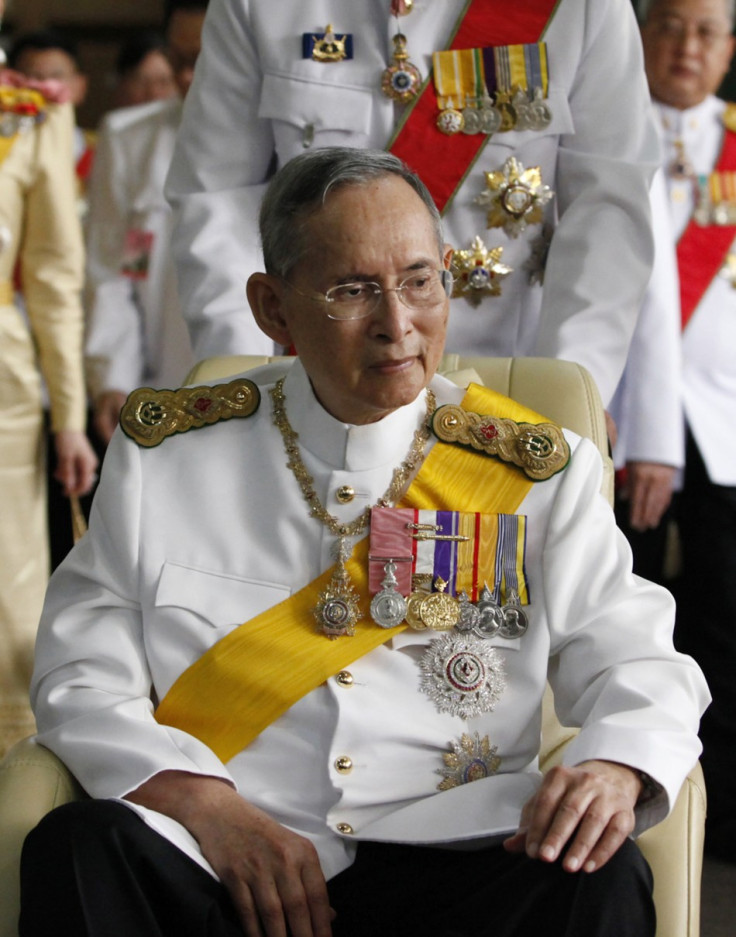Thai man faces 37 years jail for 'insulting' King Bhumibol Adulyadej's dog

A man in Thailand could be imprisoned for 37 years for "insulting" King Bhumibol Adulyadej's dog on Facebook and for sharing a post that alleged corruption in the military's construction of a monument to previous kings. Thanakorn Siripaiboon, 27, has been charged under the country's strict lèse-majesté laws.
According to reports, he is also accused of "liking" a doctored photo of the king which is deemed an insult to the country's monarchy.
Siripaiboon's lawyer, Anon Numpa, said the military court had not specified as to what exactly the insult towards the dog was. He said he was baffled that the laws could be broadened to include pet owned by the royals. "I never imagined they would use the law for the royal dog. It's nonsense," Numpa was quoted as saying by The New York Times.
Siripaiboon was arrested from his home in Bangkok last week and had his arraignment on 14 December. The next step would be his indictment but no time frame had been set by the authorities, Numpa said.
Under the lèse-majesté laws, people can be jailed for up to 15 years for insulting or threatening the monarchy. After the country's military seized power in a coup last year, it has been cracking down on any form of dissent.
The stray dog was rescued in 1998 by the ailing 88-year-old king. In 2002, he wrote a book about the dog tilted The Story of Tongdaeng, which became an instant best seller in the country.
In the book, the canine is described as a "respectful dog, with proper manners" and "is humble and knows protocol". It goes on to say that the dog "would always sit lower than the king".
In November, a woman who was charged with sedition for sharing an infographic that alleged a corruption scandal in the country committed suicide. In 2010, under the lese majeste laws, a 61-year-old man was imprisoned for 20 years for allegedly sending text messages to the queen.
US ambassador Glyn T Davies is also under investigation by Thai authorities for criticising the lengthy prison sentences being handed down under the country's lèse-majesté laws.
© Copyright IBTimes 2025. All rights reserved.





















